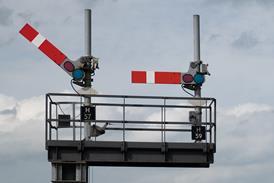NEARLY A DECADE has passed since the Railways Act 1993 instigated the world’s most dramatic break-up of a national railway. Having witnessed at first hand the chain of events that followed the destruction of British Rail, we believe it is important that other railways heed the lessons learnt so painfully.
The process of dynamic change that followed had several positive outcomes, but it is clear that separation of infrastructure from operations leads to a loss of engineering and management expertise in what is essentially a teamwork industry - whether in the UK or in New South Wales. Moreover, it is difficult for engineers and managers entering a segregated industry to gain an appreciation of the business as a whole and the complex issues involved. While remedies such as the UK’s Wheel/Rail Interface Systems Authority can help restore what was lost, it is surely better to guard against the damage in the first place.
As European legislation pushes national railways towards fragmentation, we note efforts by the Association of German Railway Engineers to inject fresh life into the concept of a railway engineering qualification valid in several European countries. The qualification ’European Railway Engineer’ has existed for several years, but take-up has been slow. One requirement is for engineers to be proficient in at least one language other than their mother tongue, but surely this is part of the process needed for interoperability?
Railways also need skills in specialist fields such as signalling and operations. The UK’s National Rail Academy was incorporated in April, and an interim Managing Director was appointed last month. NRA will ’co-ordinate initiatives’, channel external funding and act as a focal point, but as a ’virtual entity’ rather than bricks and mortar.




















